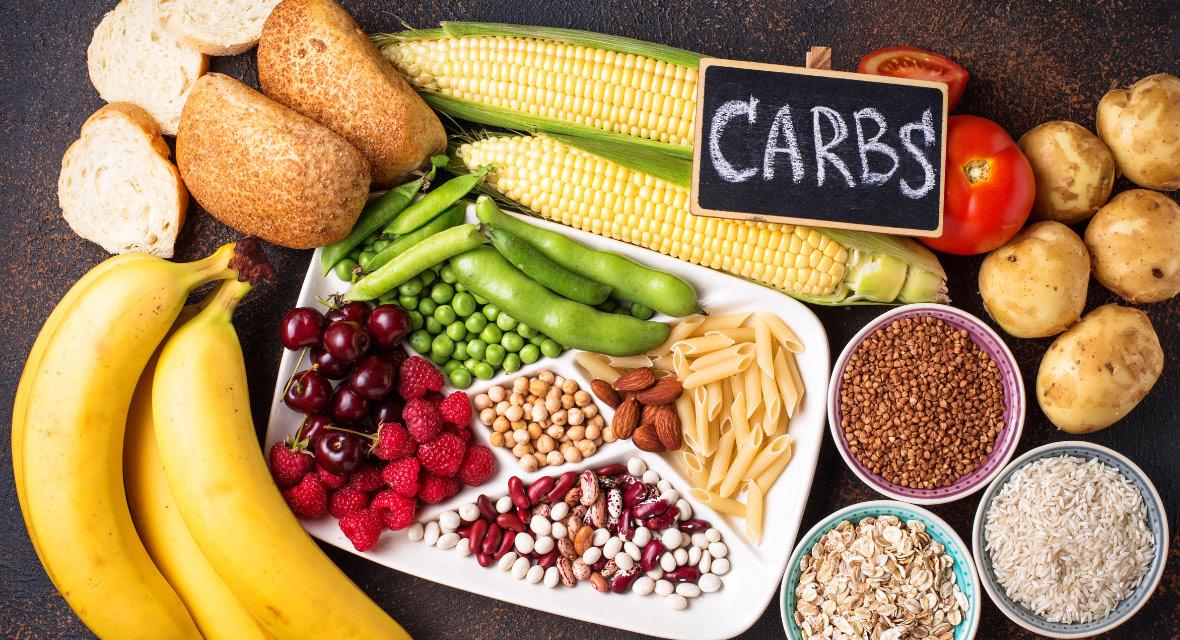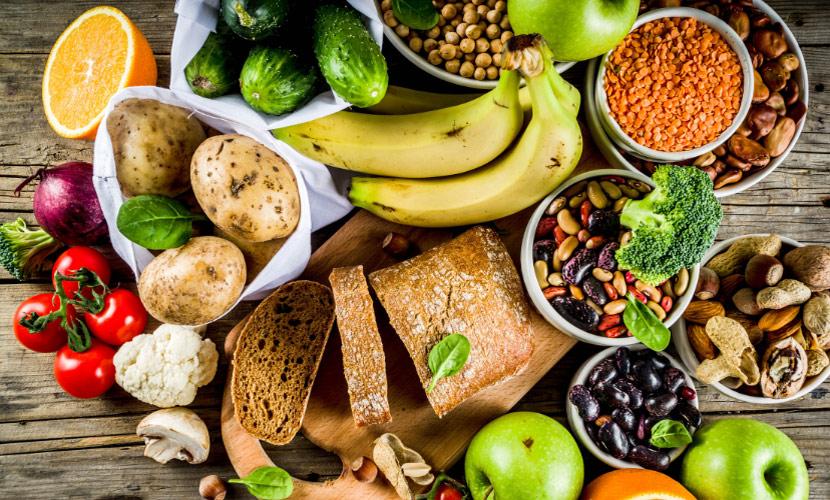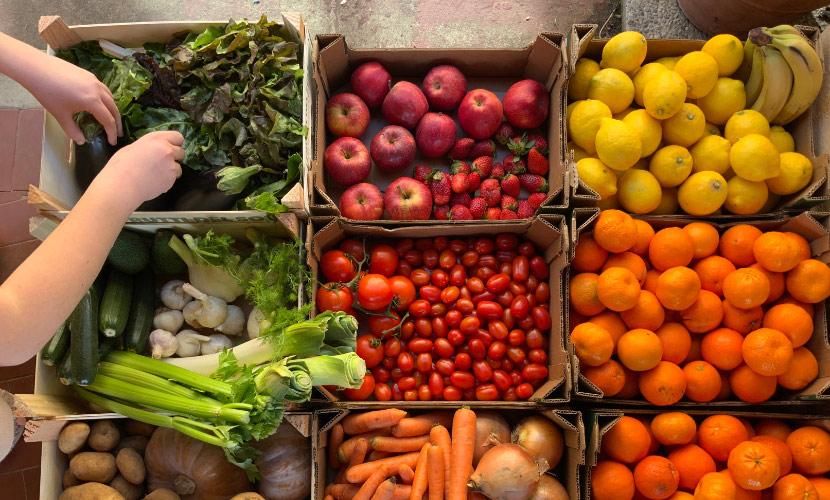🔥 Hot Days, Cool Meals – 20% Off on 4-Week Plans Only! 🔥
CODE: VM20

Complex Carbs vs Simple Carbs
Complex Carbs Vs. Simple Carbs – What's Best for You?
Carbohydrates are counted among the six major nutrients that we humans need to stay functional and survive. You might have heard from some nutritionists or diet control programs that you should watch the amount of carbs you consume.
The idea is not to cut off carbs entirely since you need them for sustenance, but the key is in finding the correct type of carbs. You may have heard the terms complex carbs and simple carbs and wondered what distinguishes them from each other.
But you can't reasonably grasp the dynamics of their disparities until you first understand them at their most fundamental level. To do so, you'll need to research what good carbohydrates are, why we need them, and which foods are the best suppliers of carbs, among other things.
Why Carbohydrates Are Important?
Good carbohydrates are one of the most critical elements for our survival. They serve as the primary source of energy. Carbs are basically the starches, sugars, and dietary fibers found in plant-based food items or dairy products.
Carbs also play pivotal roles in reproduction, blood clotting, digestion, controlling blood cholesterol levels, and building your immunity system. Your body gains four calories from consuming just one gram of carb. Carbs also make you feel full, which aids in the prevention of overeating.
Your kidney, brain, heart muscles, and even your entire central nervous system won't be functional if you don't provide them with the adequate carbs they need.
If your diet good carbohydrates, you may witness nausea, headache, bad breath, fatigue, constipation, and overall weakness. But, if you overeat carbs, it can lead to unnecessary weight gain and cause high blood sugar. Various weight loss meal plans in Dubai do not wholly exclude carbohydrates; instead, they assist you in eating the correct kinds. However, it is essential to understand the types of carbohydrates and their benefits before starting any healthy meal plans or diet.
Therefore, you need to find the sweet spot in between.
Function of Carbohydrates in the Body
When you consume carbs, your bodies break them down to glucose, providing the energy your brain and muscles need. Once the glucose enters your liver, it then travels through your bloodstream to reach every cell of your body and fill them up with energy.
This is the reason your carb intake dictates your blood sugar level. Research has shown that an average human consumes 45-65% of their total calories through carbs daily.
The amount of carbs you require will depend on your body size, blood sugar level, and the physical activities you undergo, among other factors. However, on average, it is said that if you are consuming a 2000-calorie diet daily, then you must make sure it has 225-325 gm of carbs.
Which Foods Contain Carbs?

Given how beneficial carbohydrates are to your body, it's time to look at some of the most carb-dense foods you can include in your diet. Sources of carbohydrates are as follows:
- Bread, pasta, and grains – This can include all types of bread, cornmeal, cornbread, wheat, oatmeal, flour, rice, tortilla, etc.
- Starchy vegetables – Potato, peas, corn, acorn, etc.
- Nuts and legumes – Pinto beans, black beans, refried beans, lentils, hummus, etc.
- Fruits – Apricots, apples, kiwi, orange, peach, mango, cherry, grapefruit, prunes, dates, blackberries, strawberries, raspberries, banana, honeydew, cantaloupe, watermelon, pear, raisins, plums, pineapple, etc.
- Snacks – Popcorn, tortilla chips, French fries, etc.
- Condiments and sauces – Honey, honey mustard, fruit jelly, salsa, fat-free mayonnaise, ketchup, barbeque, peanut butter, etc.
- Dairy products – Fat-free cow's milk, unsweetened plain almond milk, unsweetened plain soymilk, plain Yoghurt, etc.
Simple vs. Complex Carbs
You now know the sources of carbohydrates, but that doesn't solve finding the right type of carbs for you. Unfortunately, when you buy products from the market, most of them won't tell you whether the carb content is simple or complex in their nutrition labels.
Thus, you need to be prepared beforehand. To begin with, you need to understand that different types of carbs impact your blood glucose level differently. No matter how you manage the amount of carbs in your diet, you need to understand the various types of carbohydrates and how they affect you, along with how to include them in a healthy meal plans . There are various sources of carbohydrates, but you need to decide whether you need simple or complex carbs.
Difference Between Complex and Simple Carbs:
The debate between simple carbohydrates vs complex carbohydrates has been long ongoing. Let’s unfold the differences and understand each of their benefits.
Simple Carbs
As evident by their name, simple carbs have simple structures. They are essentially small molecules that comprise either a single monosaccharide or two monosaccharides linked to each other.
This type of carbs is pretty easy for your body to digest. They are processed in your small intestine, wherein the enzymes are broken down into singular components. Once they pass through the intestinal walls, they enter your bloodstream and provide energy.
Simple carbs are present in syrups and table sugar. They provide a spike in your blood glucose level and give your body a short burst of energy. Many people call this sudden and sharp burst of energy a sugar rush. You would experience it after consuming a sugary drink or a chocolate bar.
Examples of simple carbs include raw sugar, brown sugar, fructose, glucose, sucrose, corn syrup, and fruit juice. There are some simple carbs that you definitely should avoid and swap with some alternatives that would save more calories.
For instance, have lemonade water instead of soda, fruits instead of baked treats, market-bought fruit juices, etc. Also, try to consume homemade cookies and have them with applesauce and homemade breakfast cereals.
Complex Carbs

Complex carbs are extremely healthy for your body, and this is the type of carbs that you should mostly rely on. They are high in fiber content which makes their digestion process slow. In addition, because they make you feel full after eating them, they aid with weight management.
Healthy carbohydrate foods are also beneficial for those with type 2 diabetes since they help to regulate blood sugar levels.
Simply put, sugar is simple carbs, while fiber and starch are complex carbs. Fibers are essential since they help regulate your bowel movements while also controlling cholesterol.
Oats, rice, whole wheat bread, peas, vegetables, nuts, whole grains, beans, etc., are great examples of complex carbs. Thus, make sure to include them in your diet as much as possible. We offer nutritious meals that adhere to a rigorous diet regimen. Get hooked on one of the numerous healthy meals we provide.
The Glycaemic Load Factor
The glycaemic load factor determines the carbohydrate content of a specific carb-rich food item as well as how rapidly it raises your blood sugar level. It's a good idea to keep track of the glycaemic load of the foods you eat often.
This will assist you in making sure you're getting enough carbohydrates while also ensuring you're not going overboard.
Bottom Line
Carbohydrates are essential nutrients that you can't ignore. But which carb is good for you depends on your needs; therefore, know the difference between complex and simple carbs. While simple carbs give you sudden, short bursts of energy, complex carbs provide energy that lasts longer and takes longer to digest.
Simple carbs are mostly present in dairy products and fruits, while complex carbs primarily reside in bread, grains, rice, etc. Simple carbohydrates vs complex carbohydrates, the pros and cons balance each other but we would say try to balance between both types of carbs, although rely on complex carbs more. And remember, your choice should be dictated by the wholesomeness of the food item and not just the type of healthy carbohydrate foods in it.
Eat healthy, eat right, and live life to its fullest. Variety is the spice of life. Thus, be inclusive of different types of carbs in your daily diet.
FAQs: Simple Carbohydrates vs Complex Carbohydrates
What is the difference between complex and simple carbs?
Complex carbohydrates are more extended chains of sugar molecules. Their slower breakdown and digestion means that they gradually provide you with energy. Legumes, whole grains, fruits and vegetables all contain them. Conversely, simple carbs consist of shorter, more swiftly breaking down sugar molecules, which raises blood sugar levels rapidly. They are usually present in white bread, sweet snacks, and soft or carbonated drinks.
Why do some believe that complex carbohydrates are healthier than simple ones?
People believe that because complex carbohydrates provide you with sustained energy, help regulate blood sugar, and are frequently high in fibre and other vital nutrients, they are healthier. Complex carbs' fibre aids in meal digestion and fullness, which might help you manage your weight. Quick-release energy is provided by simple carbs, but overindulging in them can lead to weight gain and other health concerns.
How can I consume more complex carbohydrates?
Whole grains, such as brown rice, quinoa, oats, and whole wheat products, are good sources of more complex carbohydrates in your diet. Add a variety of fruits and vegetables, including lentils, beans, and other vegetables. Switching to these nutrient-dense meals from refined grains and sugary snacks will improve your energy and general health.
Reach out to start your fitness journey with us!
Meal Plans
Delivery Details
Legal Information
© 2020-2024 VMeals. All rights reserved. VMeals™ is a trademark of Flip Side Restaurant and Cafe L.L.C
We accept
